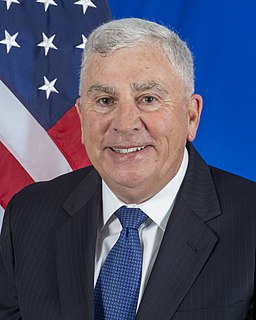A Quote by Rebecca MacKinnon
Activists from the Middle East to Asia to the former Soviet states have all been telling me that they suffer from increasingly sophisticated cyber-attacks.
Related Quotes
In terms of my conversations with [Vladimir] Putin, these are conversations that took place before the election. As I indicated, there has been very clear proof that they have engaged in cyber attacks. This isn't new. It's not unique to Russia. There are a number of states where we've seen low-level cyber attacks and industrial espionage and, you know, other behavior that we think should be out of bounds.
I have for some time now been deeply troubled by the growing difficulties faced by Christian communities in various parts of the Middle East. It seems to me that we cannot ignore the fact that Christians in the Middle East are increasingly being deliberately targeted by fundamentalist Islamist militants.
I thanked the President [George W. Bush] for the steadfastness and resolve with which he's tackling the very complicated problems in the Middle East and Iraq, as well as the Israel-Palestinian issue.... It's critical for us in Southeast Asia that America does that.... because it affects America's standing in Asia and the world, and also the security environment in Asia because extremists, the jihadists, watch carefully what's happening in the Middle East and take heart, or lose heart, depending on what's happening.
As these potential adversaries grow their missile programs, U.S. military facilities in Asia and the Middle East, as well as our allies, are increasingly in range with the United States homeland, and we are really absolutely and potentially being threatened. And within two years, we will absolutely have a real threat. They'll be able to reach us so easily the way it's going right now.

































